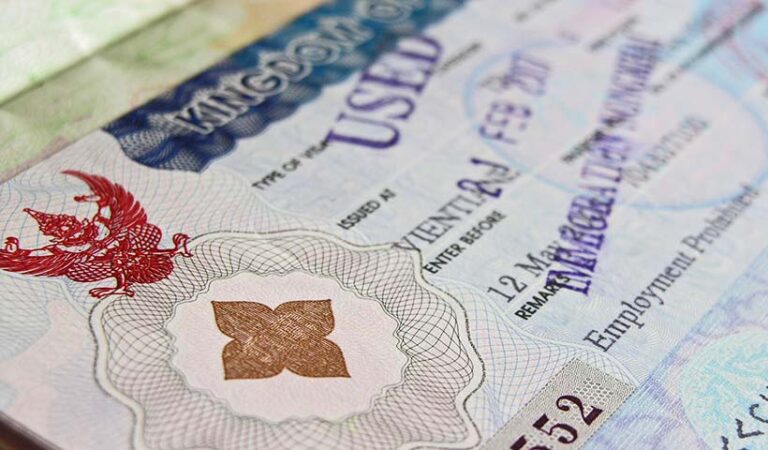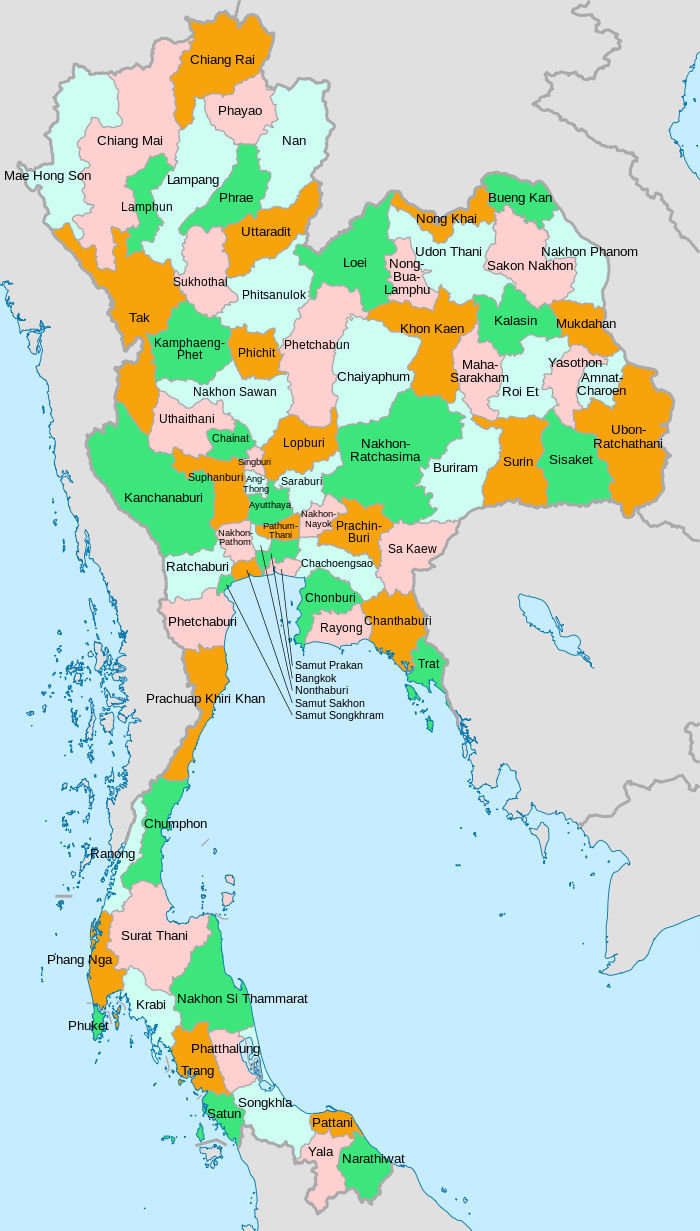The Ultimate Guide to Pet Ownership in Thailand
Welcome to ‘The Ultimate Guide to Pet Ownership in Thailand,’ a comprehensive resource designed to equip individuals with essential information on the responsibilities, regulations, and considerations involved in owning a pet in this beautiful country.
From understanding pet permits and expenses to navigating veterinary care and finding pet-friendly accommodations, this guide aims to provide you with the knowledge and resources needed to provide a loving and fulfilling home for your furry friend in Thailand.
Key Takeaways
- Understand the responsibilities of owning a pet.
- Research the specific needs and characteristics of the pet you are interested in.
- Prepare your home and make it pet-friendly.
- Consult with a veterinarian to ensure you are ready for pet ownership.
Understanding Pet Ownership Responsibilities
Responsibility is a fundamental aspect of pet ownership, encompassing the care, well-being, and overall welfare of the animal. Owning a pet in Thailand requires a deep understanding of the responsibilities involved.
As a pet owner, it is your duty to provide proper nutrition, exercise, and healthcare for your pet. This includes regular visits to a veterinarian to ensure their health and well-being. Additionally, you must provide a safe and comfortable living environment, as well as socialization and mental stimulation.
It is important to educate yourself on the specific needs and characteristics of the pet you are interested in, as different animals have different requirements. By fulfilling these responsibilities, you can ensure a happy and fulfilling life for both you and your pet.
Researching Pet Needs and Characteristics
Before making a decision to bring a pet into your home, it is essential to thoroughly research their needs and characteristics, as well as consider the level of commitment required.
Here are three important aspects to consider when researching pet needs and characteristics:
- Physical Needs: Different pets have different physical needs. For example, dogs require daily exercise, while cats are more independent and may require less exercise. It is important to understand the specific exercise, grooming, and dietary requirements of the pet you are interested in to ensure you can meet their needs.
- Behavioral Characteristics: Each pet has its own unique personality and behavioral traits. Some pets may be more social and friendly, while others may be more independent or require more training. Understanding the behavioral characteristics of a pet can help you choose a pet that aligns with your lifestyle and preferences.
- Lifespan and Health Issues: Pets have varying lifespans and may be prone to certain health issues. Researching the average lifespan and common health problems of the pet you are considering can help you make an informed decision and prepare for any potential medical expenses.
Financial Considerations for Pet Ownership
One important aspect to consider when owning a pet in Thailand is the financial commitment involved. Pet ownership comes with various expenses that should be taken into account.
These expenses include the cost of pet food, treats, and toys, which can vary depending on the type, size, and dietary needs of your pet.
It is also important to budget for unexpected expenses, such as emergency vet visits. On average, the total monthly expenses for a pet in Thailand can range from $85 to $145. When it comes to veterinary care, Thailand is known for its affordable services. Basic checkups for pets typically cost around $20, while basic medications cost about $5 per prescription.
It is advisable to seek recommendations from other pet owners or expats to find reputable veterinarians. Consider getting pet insurance to help cover veterinary expenses and ease the financial burden of owning a pet in Thailand.
Obtaining Permits for Exotic Pets
To legally own an exotic pet in Thailand, individuals must obtain permits from the Department of National Parks, Wildlife, and Plant Conservation (DNP).
It is important to follow the regulations set by the DNP and the Convention on International Trade in Endangered Species of Wild Fauna and Flora (CITES) to ensure the ethical and responsible ownership of exotic pets.
Obtaining permits for exotic pets involves the following steps:
- Research and identify the specific requirements for owning the desired exotic pet species.
- Prepare the necessary documentation, such as proof of legal acquisition, health certificates, and a detailed care plan.
- Submit the permit application to the DNP, providing all required information and supporting documents.
Veterinary Care in Thailand
Veterinary care in Thailand offers pet owners a range of affordable and comprehensive services for their beloved companions. Veterinarians in Thailand are known for their thoroughness and affordability, making it easier for pet owners to provide the necessary care for their pets.
Basic checkups for pets typically cost around $20, while basic medications for pets cost about $5 per prescription. It is recommended to seek recommendations from other pet owners or expats for reputable veterinarians in the area.
Additionally, pet owners may consider getting pet insurance to help cover veterinary expenses. With the availability of affordable veterinary care, pet owners in Thailand can ensure that their pets receive the necessary medical attention and stay in good health.
Pet-Friendly Accommodations and Places
Pet owners in Thailand should consider the availability of pet-friendly accommodations and places to ensure a comfortable environment for their furry companions.
Here are three key considerations for finding pet-friendly accommodations and places in Thailand:
- Check with your building manager or landlord regarding the pet policy before buying or adopting. Some condos may have strict no-pet policies, while houses generally accept common pets like dogs and cats.
- Consider the availability of pet-friendly apartments or houses if you frequently move. This will provide a more stable and accommodating environment for both you and your pet.
- Take advantage of the many parks and nature trails throughout Thailand that allow pets. Chiang Mai University is known for its welcoming dog community, and there are plenty of public parks in Chiang Mai suitable for furry friends. Just be sure to clean up after your pet to maintain the cleanliness of these public spaces.
Parks and Nature Trails for Pets in Thailand
Surprisingly, there are numerous parks and nature trails available in Thailand that are perfect for pets and their owners to explore together.
In Chiang Mai, public parks such as Buak Hard Public Park and Nong Buak Hard Public Park are well-suited for furry friends. These parks offer spacious grassy areas, walking paths, and even designated off-leash areas for dogs to roam freely.
In Bangkok, Lumpini Park is a popular spot for pet owners, offering a large green space and a lake where dogs can enjoy a leisurely swim.
It is important to note that pets are not allowed in national parks in Thailand, as this policy is strictly enforced to protect the environment.
However, many public beaches in Thailand, such as Nai Harn beach in Phuket, are welcoming to dogs and their owners.
Dealing With Soi Dogs in Thailand
One must be cautious when interacting with soi dogs in Thailand, as they can exhibit unpredictable behavior.
These street dogs, also known as soi dogs, are a common sight throughout the country. While most soi dogs are well-behaved and keep their distance from people, it is important to be aware of their potential behaviors.
Here are three things to keep in mind when dealing with soi dogs in Thailand:
- Approach with caution: Soi dogs may react defensively if they feel threatened or cornered. It is best to approach them slowly and calmly, allowing them to approach you if they feel comfortable.
- Do not provoke or taunt them: Soi dogs may respond aggressively if provoked by other animals or humans. It is important to avoid any actions that may agitate or upset them.
- Avoid traveling in packs at night: Soi dogs may exhibit more aggressive behavior when traveling in packs, especially during nighttime. It is advisable to avoid confrontations with packs of soi dogs and to be cautious when walking alone in areas with a high population of street dogs.
Frequently Asked Questions
Are There Any Restrictions on the Number of Pets a Person Can Own in Thailand?
There are no specific restrictions on the number of pets a person can own in Thailand. However, it is important to ensure that you can provide proper care, attention, and resources for each pet.
What Are the Common Diseases or Health Issues That Pets in Thailand May Face?
Common diseases and health issues that pets in Thailand may face include tick-borne diseases, heartworm, parasites, heatstroke, and snake bites. Regular veterinary check-ups, vaccinations, and preventive measures, such as flea and tick control, are essential for maintaining their health and well-being.
Are There Any Specific Regulations or Requirements for Traveling With Pets Within Thailand?
There are specific regulations and requirements for traveling with pets within Thailand. These include the need for a health certificate issued by a veterinarian, up-to-date vaccinations, and proper identification tags. It is also recommended to check with airlines and accommodations for their specific pet travel policies.
Are There Any Specific Laws or Regulations Regarding Pet Waste Disposal in Public Places in Thailand?
There are no specific laws or regulations regarding pet waste disposal in public places in Thailand. However, pet owners are expected to clean up after their pets as a common courtesy and to maintain cleanliness in public areas.
Are There Any Local Organizations or Groups in Thailand That Provide Pet Adoption or Fostering Services?
There are several local organizations and groups in Thailand that provide pet adoption or fostering services. These organizations work to find loving homes for abandoned or stray pets and offer support and resources to pet owners.
Conclusion
In conclusion, owning a pet in Thailand comes with various responsibilities and considerations.
Understanding the regulations and permits for different types of pets is crucial, as well as being prepared for the financial aspects of pet ownership.
Access to veterinary care, including affordable options and the importance of pet insurance, is essential for ensuring your pet’s health and well-being.
Lastly, knowing about pet-friendly accommodations and places in Thailand will help you provide a loving and fulfilling home for your furry friend.







